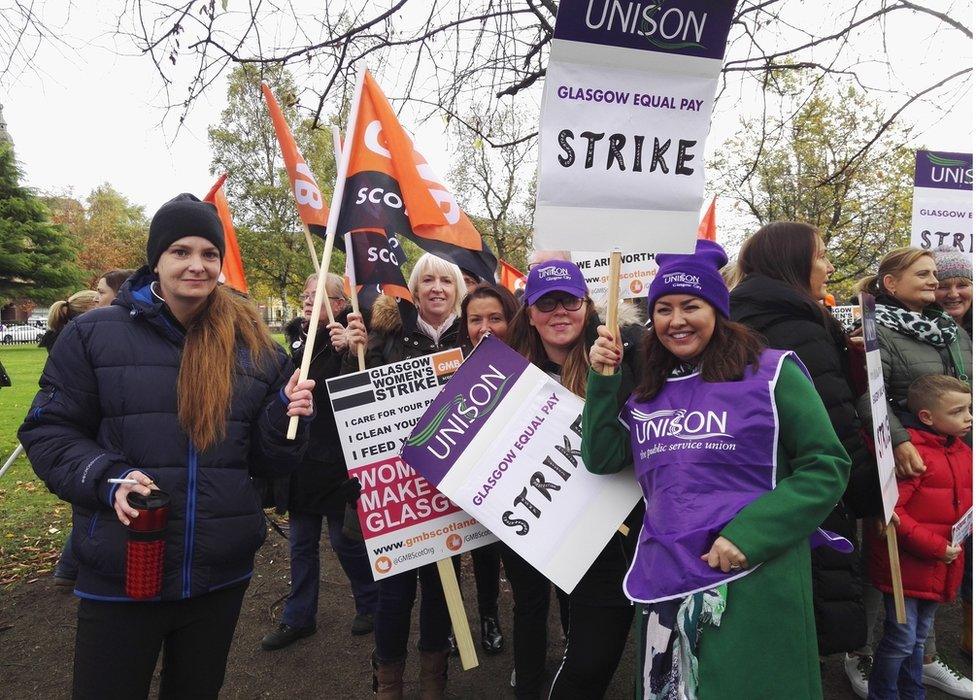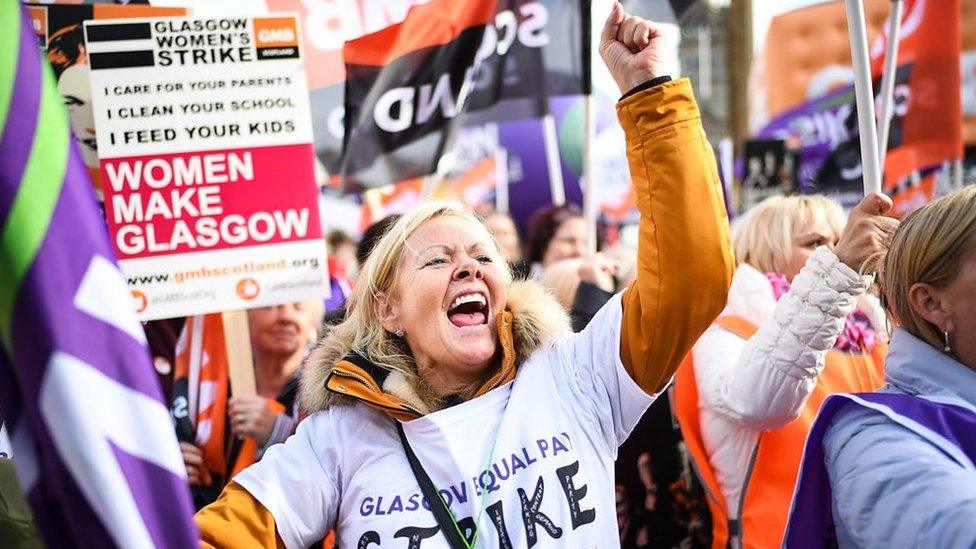Glasgow women's equal pay awards hit by council tax arrears
- Published

Thousands of women won a long-running dispute earlier this year
Some of the women who won equal pay claims against Glasgow City Council will not receive any money because of council tax arrears, it has emerged.
Thousands of women won a long-running dispute earlier this year and are now receiving payouts.
The agreement struck with unions included a provision to deduct any council tax arrears from the payouts.
It is likely about £10m will be deducted in total out of a settlement worth more than £500m.
The council could not confirm reports that as many as 200 women, external would receive no payment at all because of arrears.
The dispute stemmed from the way jobs were graded in 2006.
It meant pay was lower in some jobs mostly done by women, such as cleaning and providing care, than in some jobs of equal value mostly done by men, including rubbish collection.
Frustration at the length of time it was taking to solve the problem led to a 48-hour strike last October.

Thousands of women marched in Glasgow in one of the biggest strikes over equal pay in the UK.
A settlement was reached earlier this year and the women started to receive their payouts, which average £35,000 each although the figures vary widely, last week.
It was always known that any council tax arrears would be deducted from the payments.
However, it is understood that in a relatively small number of cases, the council tax debt is large enough to balance the payment out completely.
Further payments
Deductions are only being made in cases where a summary warrant was issued to recover the arrears.
When this happens, the council tries to agree a plan with the individual concerned to gradually pay off the debt.
For instance, someone who owes £1,000 may pay back £10 a month for 100 months.
In legal terms, all adults in a household who do not have exemptions are jointly responsible for ensuring the council tax is paid.
The council is now working on a new pay grading system for staff, which is likely to be introduced by 2021.
This could lead to further equalisation payments for current staff.